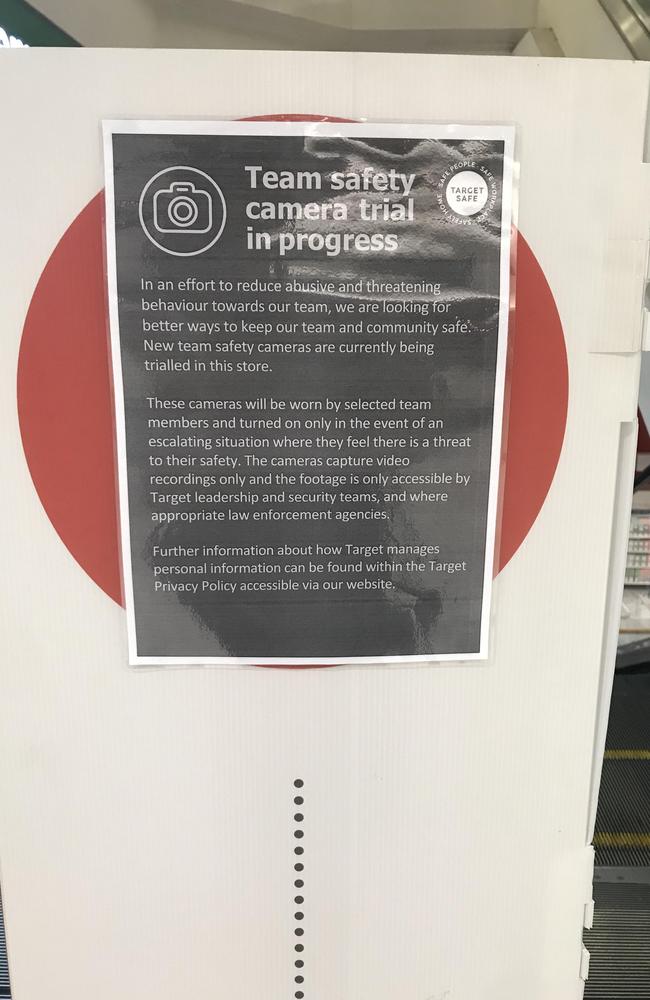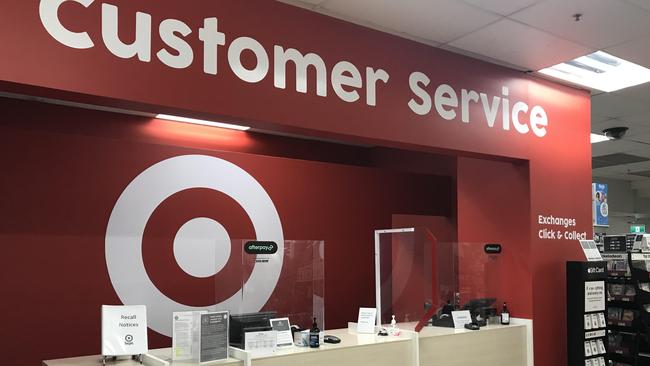Major retailers roll out body worn cameras for staff protection
Some of the country’s biggest retailers, including Target, Bunnings and Woolworths, are taking an extreme measure to keep their staff safe amid a shocking doubling of instances of abuse from customers.
Police & Courts
Don't miss out on the headlines from Police & Courts. Followed categories will be added to My News.
Body-worn cameras are being trialled in major retail outlets in Queensland in an attempt to curb a disturbing rise in abuse directed at staff.
Target, Bunnings and Woolworths have adopted the radical approach, with several Queensland stores implementing the rollout of the devices used by law-enforcement agencies around the world after reports of worker abuse doubled in just one year.
Two Queensland-based Target stores, one Woolworths store and a Bunnings have joined a growing number of Australian shops trialling the cams.
The move comes after a survey conducted by the retail workers union – Shop, Distributive and Allied Employees Association (SDA) – revealed 76 per cent of participants reported customer behaviour worsened since the pandemic and, shockingly, more than one in five participants personally experienced violent behaviour from customers – including spitting or deliberate coughing.

SDA Queensland Secretary Chris Gazenbeek said he supported the use of the cameras, provided staff were properly trained and comfortable in wearing one.
“(The cameras) support the reduction of violence experienced by retail and fast food staff as well as providing safety, reassurance and support during working hours,” he said.
Mr Gazenbeek said the cams had been successful internationally, with one large British retailer reporting a 27 per cent decrease in overall violent incidents since the rollout.
Australian Retailers Association chef executive Paul Zahra said it was clear protocols surrounding coronavirus had led to a rise in worker abuse.
“We saw elevated levels of customer aggression when the most stringent Covid protocols were in place around check-in requirements, mask wearing and showing your proof of vaccination,” he said.
“Unfortunately, managing customer aggression has become a new skill for frontline workers.”
A Woolworths spokesman said body-worn cameras have been implemented to “see if they can help prevent assaults and abuse of our team members … (following) a doubling in reports of assaults in our stores in 2020.”

Across the board, retailers reported a significant increase in frontline worker abuse as a result of the pandemic, and some also sighted product shortages.
Bunnings chief operating officer Simon McDowell said it was crucial to do everything possible to discourage poor customer behaviour, and as a result had rolled out cameras to three stores across Australia.
His sentiments were replicated by other retailers, including Target’s general manager (store operations and supply chain) Tim Kemp.
“We are currently conducting a small trial of team member safety cameras in six Target stores nationally as a way of deterring threatening situations,” Mr Kemp said.
Leading criminal lawyer Bill Potts, of Potts Lawyers, said providing body-worn cameras were being used appropriately, there was no problem in rolling them out through retail stores – providing customers were made aware.
“I have no problem with stores properly filming people, proving there is clear notice that is what is going to occur, and that it is not intrusive,” Mr Potts said.
“There has to be - as there is with police and other agencies - a considerable amount of training. I would want to know there was security around the film’s use, and the way in which it is stored.”
He said in situations of criminal matters involving police, a person knowingly being filmed by a BWC was more likely to act in a lawful manner.


